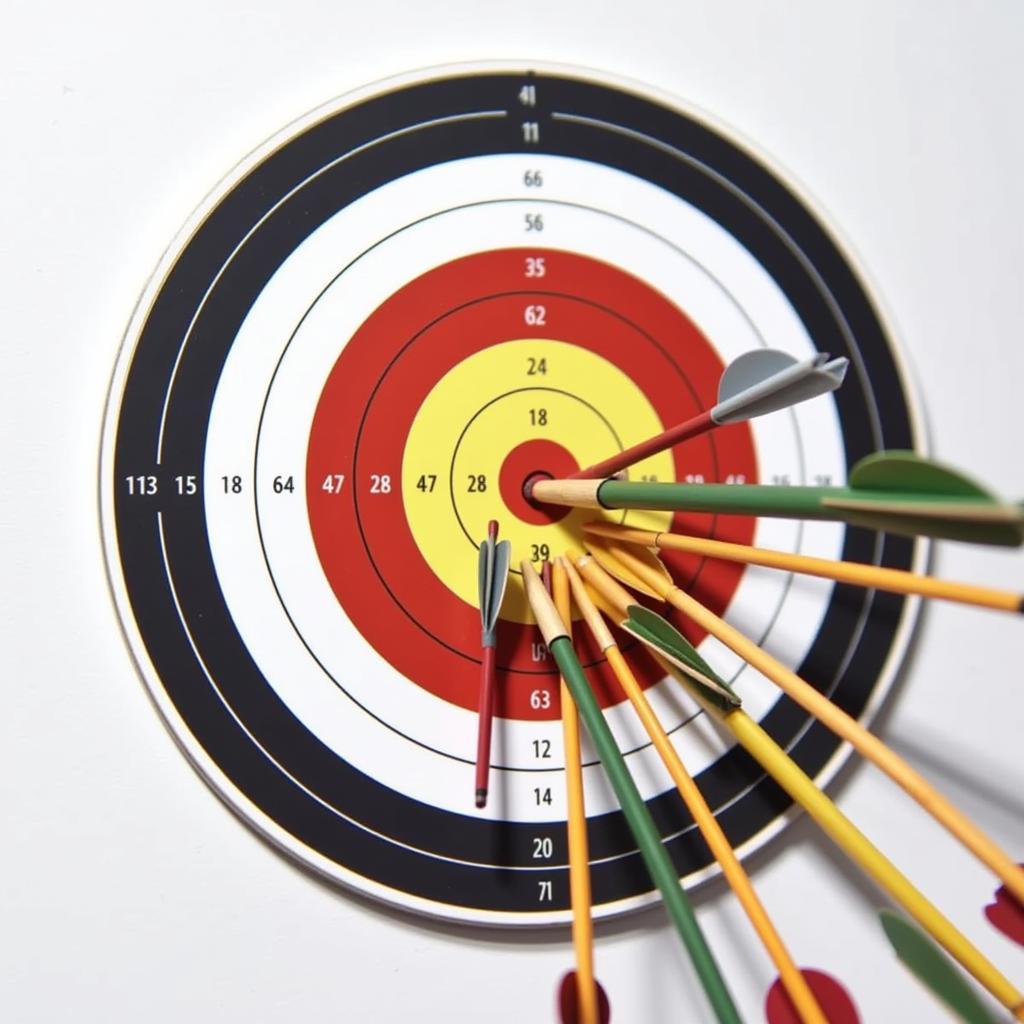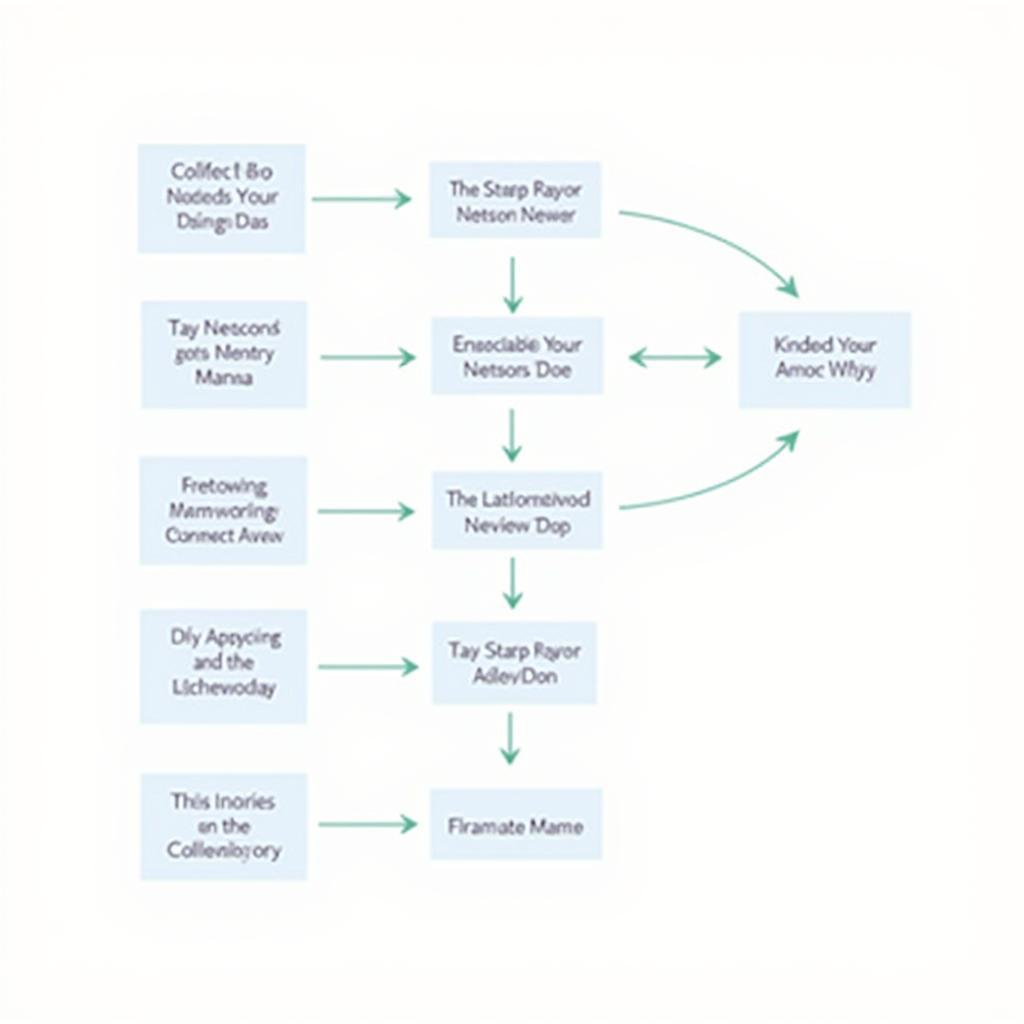Criteria Of Good Measurement In Research are essential for obtaining reliable and valid results. These criteria ensure that the data collected accurately reflects the phenomenon being studied and can be used to draw meaningful conclusions. Understanding these principles is crucial for any researcher, whether investigating the paranormal or the mundane.
What Makes a Good Measurement in Research?
Several key criteria define a good measurement in research. These elements ensure data accuracy, consistency, and relevance to the research question. Let’s explore these vital components in detail. They apply equally to traditional scientific research and investigations into paranormal phenomena, like those conducted by our m3global research.
Validity: Measuring What You Intend to Measure
Validity refers to whether a measurement tool actually measures what it is supposed to measure. For example, if you’re researching the effectiveness of different EMF meters in detecting paranormal activity, the validity of your measurements depends on whether the EMF meter is actually sensitive to the type of energy you believe is associated with such activity. Think of it like using a thermometer to measure weight – it’s the wrong tool for the job.
 Validity in Measurement Research
Validity in Measurement Research
Reliability: Consistency is Key
Reliability refers to the consistency of a measurement. A reliable measurement tool will produce similar results under similar conditions. If you repeatedly measure the same location with an EMF meter and get wildly different readings, the reliability of the meter is questionable. This is especially crucial in paranormal research, where environmental factors can significantly influence readings. Just as in traditional scientific research, we rely on rigorous sampling techniques in survey research to ensure reliable results.
Accuracy: Getting the Right Answer
Accuracy refers to how close a measurement is to the true value. In paranormal research, determining the “true value” can be challenging, given the subjective nature of many phenomena. However, striving for accuracy means minimizing errors and biases in our data collection methods. For instance, calibrating equipment and using multiple observers can improve the accuracy of observations.
Objectivity: Removing Bias from the Equation
Objectivity refers to the extent to which a measurement is free from bias. In paranormal research, it’s essential to avoid letting personal beliefs or expectations influence data collection and interpretation. Double-blind experiments, where neither the researcher nor the participants know the specific conditions of the experiment, can help ensure objectivity.
How do you ensure the criteria of good measurement are met?
Meeting the criteria for good measurement requires careful planning and execution. It involves selecting the right tools, using standardized procedures, and controlling for extraneous variables. Think of it like baking a cake – the right ingredients and method are essential for a good result.
Choosing the Right Tools
The tools used in research must be appropriate for the phenomenon being studied. In paranormal research, this might include EMF meters, thermal cameras, audio recorders, and even questionnaires. Each tool must be calibrated and used correctly to ensure accurate and reliable data.
Standardized Procedures
Standardizing procedures ensures that measurements are taken consistently across different times and locations. This is crucial for comparing data and drawing meaningful conclusions.
 Standardized Procedures in Research
Standardized Procedures in Research
Conclusion: Criteria of good measurement in research are crucial for obtaining valid and reliable results. By focusing on validity, reliability, accuracy, and objectivity, researchers can ensure that their data accurately reflect the phenomenon being studied, allowing them to draw meaningful conclusions about the world around us, both seen and unseen. By applying these principles, we can strive for a more rigorous and scientific approach to understanding the mysteries of the paranormal.
FAQ
- What is the most important criterion of good measurement? All are important, but validity is paramount, as it ensures you’re measuring what you intend to.
- How can I improve the reliability of my measurements? Standardize procedures, use reliable instruments, and train observers carefully.
- Why is objectivity important in research? Objectivity minimizes bias, allowing for more accurate and trustworthy results.
- How can I ensure my research is accurate? Calibrate equipment, use multiple measurement methods, and control for extraneous variables.
- What is the difference between validity and reliability? Validity is about measuring the right thing, while reliability is about getting consistent results.
For any further assistance or inquiries regarding Paranormal Research, please don’t hesitate to contact us. Call us at 0904826292, email us at research@gmail.com, or visit us at No. 31, Alley 142/7, P. Phú Viên, Bồ Đề, Long Biên, Hà Nội, Việt Nam. Our dedicated customer support team is available 24/7 to assist you.